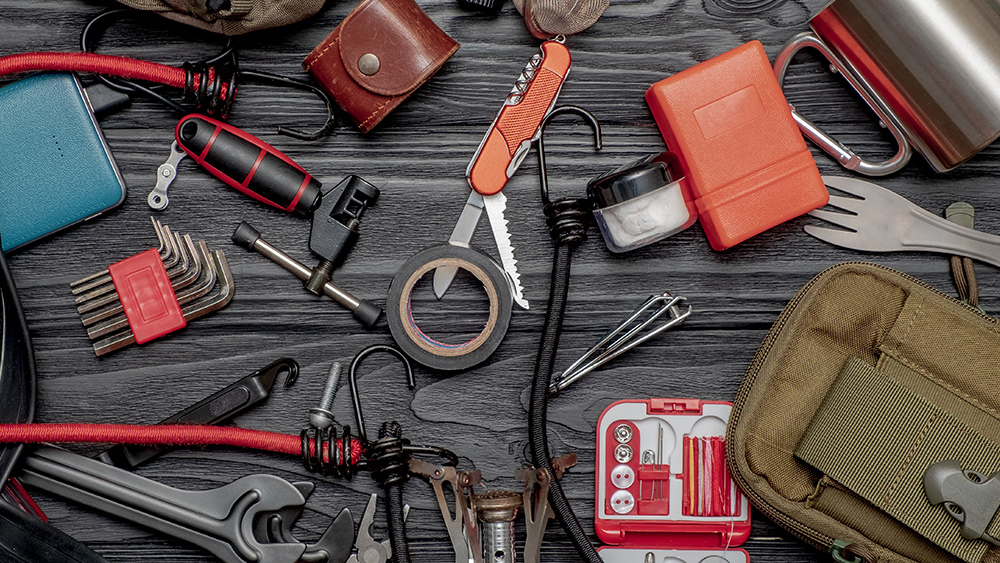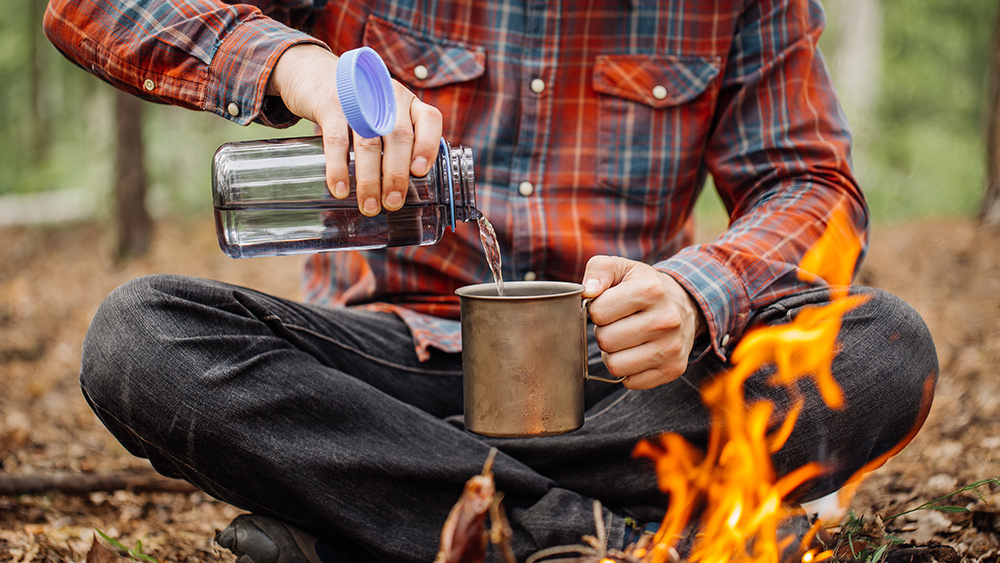8 Crucial survival tips to know
By Russel Davis // Jul 19, 2018
TAGS: emergency preparedness, natural disasters, preparedness, prepping, survival, Survival Tips, wilderness

Survival is a primal human instinct that kicks in during trying times such as natural disasters and societal collapse. Having said so, reliable survival skills may come in handy when such events take place. Preppers and survivalists all over the world have discussed various ways to effectively prepare for these occurrences, especially when you are either stuck inside your home or are forced to wander in the wilderness. Here are few preparedness and survival tips to take note of.
4 Survival/preparedness tips during natural disasters
Natural disasters strike when you least expect them. Below are a few essential tips that may help you survive these natural calamities.
- Earthquake -- Earthquakes are among the most destructive natural calamities. At the event of a strong earthquake, it is recommended that you duck and crawl under a sturdy table and cover your face and head with your arms. If you are trapped under the debris, cover your mouth with a cloth or shirt and tap on something that could make noise.
- Flood -- It is advisable to immediately evacuate to a higher ground once a flood warning is raised. According to a Popular Mechanics article, six inches of flowing water can stumble pedestrians, while a foot of turbulent floods can readily move vehicles. It is also recommended to stay away from downed power lines at the event of a flash flood.
- Hurricane -- Powerful hurricanes can wreak extensive havoc on anyone's home and may threaten your safety. When a hurricane strikes, it is important to follow evacuation orders and to turn off any utilities. If you are unable to move out, turn off your gas pipes and fill your tubs with water. It is also essential that you secure window shutters and move to an interior room while the hurricane ravages the area.
- Tornado -- It is important to tune in to weather reports during a storm as it is usually accompanied by extremely strong winds and tornadoes. Once a tornado warning is given, immediately head to the basement or the lowest floor level of the house. If you happen to be in a car during the event, it is advisable to leave the vehicle and seek shelter indoors. If you are caught in an open area, lie flat in a ditch or depression and protect your head with your arms.
4 Essential tips to survive in the wild
The wilderness can be a harsh environment for some, but these survival tips from the Life Hacker website may come in handy if you find yourself trapped in the wild.
- Physical needs -- According to the article, it is important to take note of these two basic survival essentials: clean water and food. The article cautions that stagnant water may not be completely safe even after boiling. The entry notes that grazing animals as well as certain insects such as mosquitoes tend to stay near water sources. Following these animals may lead you to a potable water source. Likewise, digging a dry river bed may produce water that can be boiled and drank. The article also stresses that certain plants -- such as acorns, cattails, pine and even grass -- may serve as readily available food sources in the wild.
- Shelter and fire -- Shelter and fire are just as important as food and water in terms of survival. The lenses of an eye glass, or even water bottles, may help create a fire especially on a sunny day. Likewise, building a shelter from tree branches and any material that may block off the elements like cloth or plastic may serve as a temporary refuge in the wilderness.
- First aid -- A basic knowledge of first aid may help boost wilderness survival especially when you get skin burns, fractures, or any other injuries.
- Warding off wild animals -- Wild animals such as cougars, coyotes, and wolves are an added threat to wilderness survival. It is advisable to avoid any such contact. However, intimidation techniques such as looking bigger and making loud noises may help deter a wild animal attack when an encounter occurs.
Sources include:
Related Topics
emergency preparedness natural disasters preparedness prepping survival Survival Tips wildernessLatest News
04/27/2023 / By Ethan Huff
Related News
01/10/2023 / By Zoey Sky
01/06/2023 / By Olivia Cook
01/02/2023 / By Zoey Sky
12/14/2022 / By Zoey Sky
12/13/2022 / By Kevin Hughes
12/07/2022 / By Zoey Sky
11/30/2022 / By Zoey Sky
Take Action:
Support NewsTarget by linking to this article from your website.
Permalink to this article:
Copy
Embed article link:
Copy
Reprinting this article:
Non-commercial use is permitted with credit to NewsTarget.com (including a clickable link).
Please contact us for more information.
Please contact us for more information.





















